20 Ways to Procrastinate Productively
Turn those daydreams into definitive actions with these easy tricks.

Procrastination is often considered the mortal enemy of productivity. However, while we've been conditioned to believe that there's no good way to put off something on our to-do list, that's actually far from the truth. Enter: productive procrastination. Unlike delaying responsibilities to watch TV or text friends, productive forms of procrastination can actually help you accomplish your tasks more efficiently in the long run.
"The more we suppress our 'don't want to do' feelings, the less likely we'll do whatever it is," explains psychotherapist Karen R. Koenig, M.Ed., LCSW. "By not pressuring ourselves to do a behavior or take an action and instead non-judgmentally examining the feelings why we don't want to do it, we are more likely to be able to work through these feelings and resolve our ambivalence."
Don't know how to start? These tips for procrastinating productively will have you turning those breaks into something useful in no time.
1
Take a walk.

A walk around the block might just be the thing you need to improve your focus when you feel the urge to procrastinate. One 2008 study published in Neuroscience Letters found that just 10 minutes of exercise was enough to improve concentration and attention in adolescents in school. So even if you only have a few minutes to spare, use that time wisely and get moving.
2
Make a to-do list.
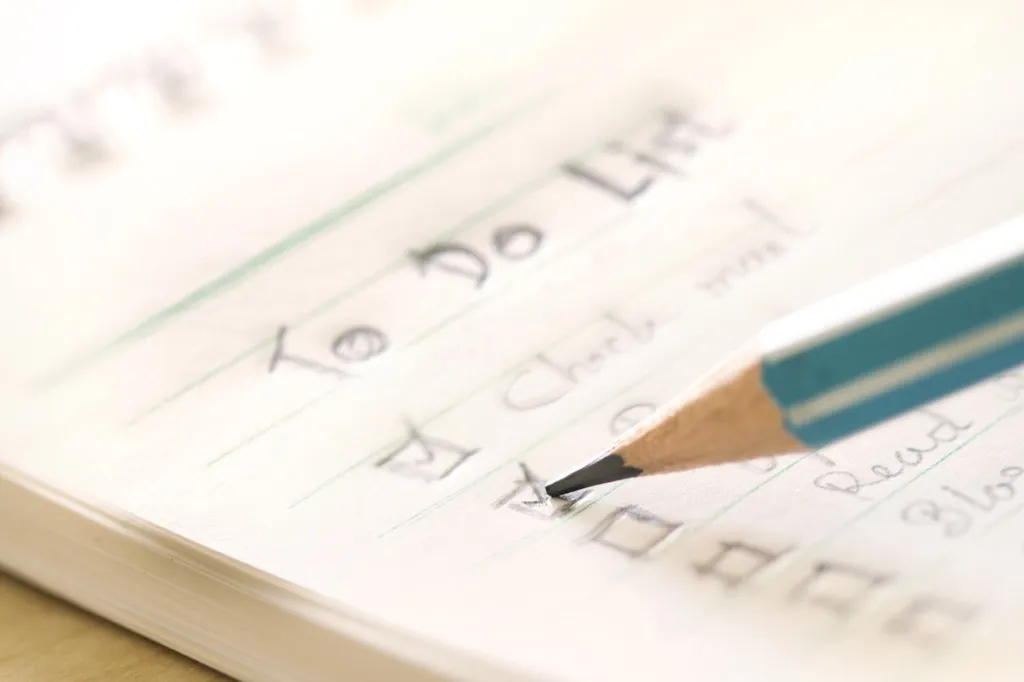
Want to turn those moments of procrastination into moments of productivity? Start by making a to-do list. Jotting down the tasks you need to complete can help you mentally prepare to get them out of the way and become more aware of the resources around you that can help you do so.
As Art Markman, PhD, a professor of psychology and marketing at the University of Texas at Austin, noted on Fast Company, simply reading over a to-do list "helps remind you what you're trying to accomplish in the first place" and "primes your mind to problem solve."
3
Write down your distractions by hand.

The first step toward eliminating distractions is identifying them. And when you do identify what's causing you to procrastinate, writing down those things can help you compartmentalize and eliminate what's taking up your time.
Just make sure that you're using a pen and paper over your laptop when you write down what's on your mind: In 2014, researchers at Princeton University and UCLA found that writing things down by hand was more conducive to information retention and focusing than typing on a computer.
4
Send progress updates to a friend or colleague.
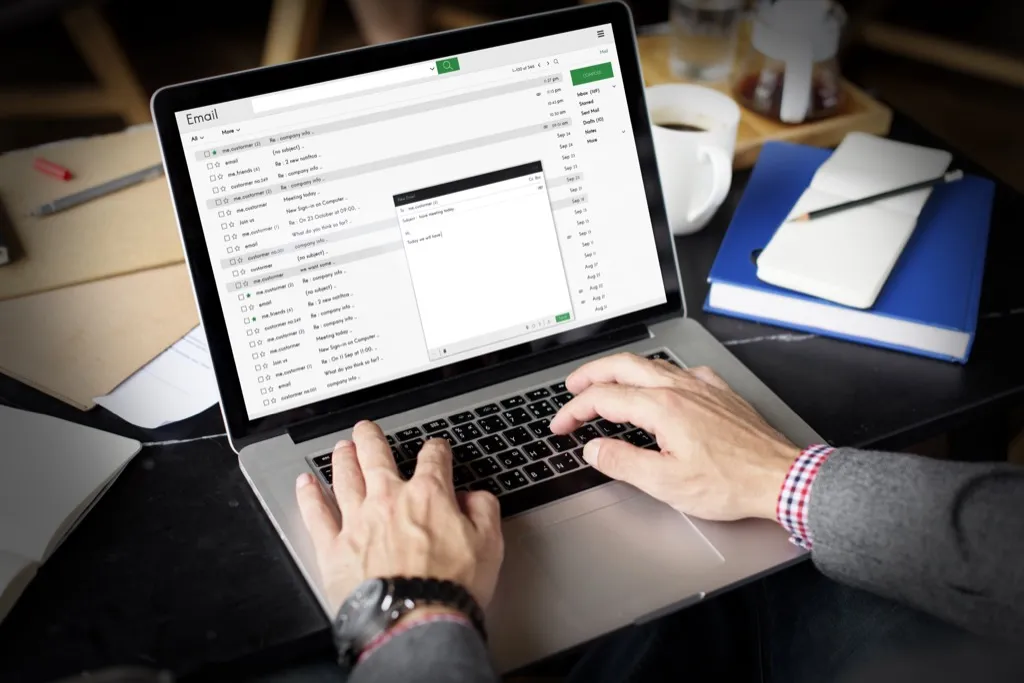
If you want to stop procrastinating at work, then treat the office like the gym and find a partner who will keep you accountable. A 2015 study from Dominican University found that when workers were required to send weekly updates to a friend, more than 70 percent reported that they successfully achieved their goals. Comparatively, only 35 percent of subjects who kept their to-dos to themselves were able to actually get through them.
5
Take a lunch break.

Even on days when it feels like your to-do list is never-ending, make sure to take an hour off for lunch. One 2018 survey from hygiene brand Tork found that while 78 percent of workers who took lunch breaks every day believed themselves to be effective and efficient workers, 71 percent of those who didn't regularly leave their desks for lunch felt the same way.
6
And take breaks throughout the day.

Instead of letting yourself procrastinate whenever the mood strikes, try scheduling some breaks into your day. One 2011 study published in the journal Cognition found that while subjects who completed a task without breaks for 50 minutes saw a drop in their performance over time, those who were given two brief breaks had a consistent level of performance.
"Deactivating and reactivating your goals allows you to stay focused," Alejandro Lleras, lead study author and psychology professor at the University of Illinois, said in a press release. "When faced with long tasks, it is best to impose brief breaks on yourself. Brief mental breaks will actually help you stay focused on your task!"
7
Think about your tasks in concrete, specific terms.

If you're the type of person who prefers to perform their job functions in a more abstract way—that is to say, you'd rather mull over a task than actually create a plan for solving it—then you might want to change your strategy. One 2008 study published in Psychological Science found that students who approached a questionnaire concretely were more likely to get it done in a timely manner than those who thought about it abstractly. "Merely thinking about [a] task in more concrete, specific terms makes it feel like it should be completed sooner and thus [reduces] procrastination," the study authors concluded.
8
Treat yourself with kindness.

Instead of feeling glum about your tendency to procrastinate, add some much-needed optimism into your day with positive affirmations. Treating yourself with kindness rather than tearing yourself down can help you feel more confident and improve both the quality and quantity of your work in the long run, according to one 2002 field study from the University of Tennessee.
9
Chew some gum.

The next time you find yourself procrastinating, try chewing a piece of gum. One 2013 study published in the British Journal of Psychology found that when performing an audio task, subjects who chewed gum had more accurate results than those who didn't.
10
Play some brain games.
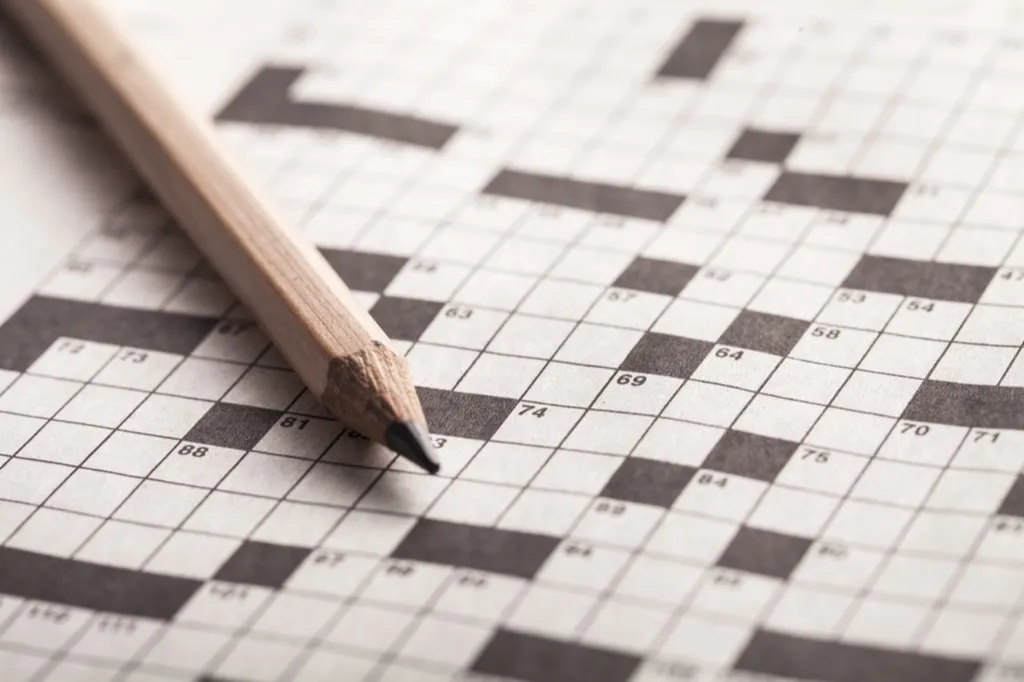
If you want to turn your stalling into some serious progress, try doing a crossword puzzle while you procrastinate. Not only are brain-boosting games like puzzles a great way to improve your concentration, but research suggests that they may improve your cognitive fitness and memory, both of which can help when you do finally tackle your to-do list.
11
Read an interesting article.

Just because you need a break doesn't mean you need to turn your brain off entirely. Rather, reading the news can help you productively de-stress and get your head back in the game.
12
Clean your inbox.
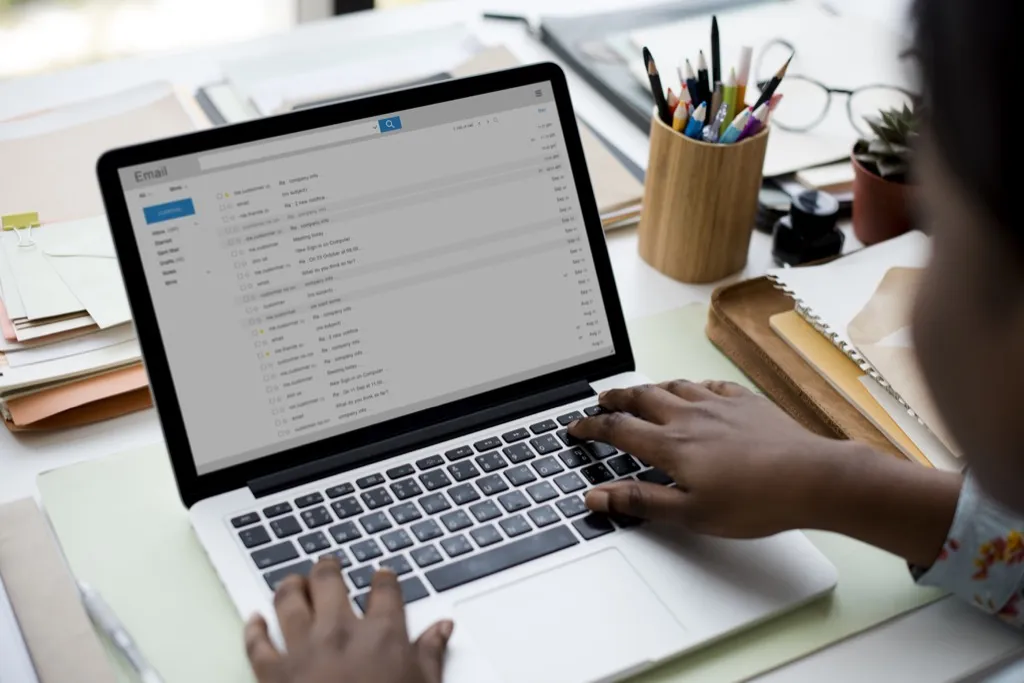
A crowded inbox can take a surprisingly heavy toll on your mind. So, if you're feeling like you can't concentrate, try responding to important emails and deleting spam ones; getting rid of the digital to-dos on your plate will give you some serious peace of mind and allow you to focus on the more pressing tasks at hand.
13
Buy a potted plant for your desk.
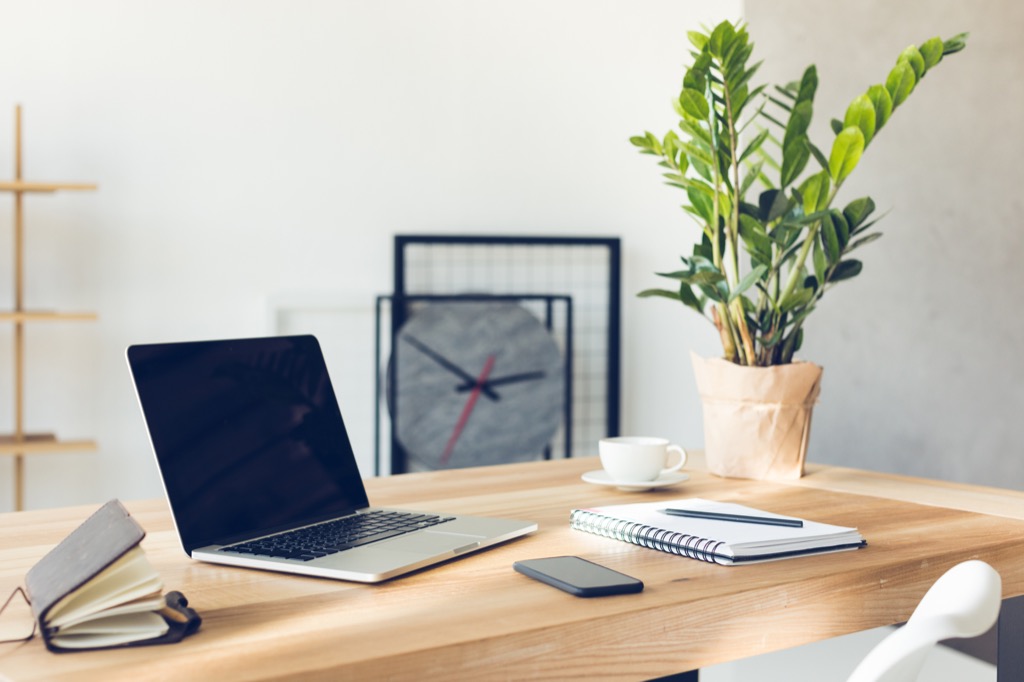
Feeling particularly unproductive? Head to the nearest flower shop and buy yourself a desk plant! One 2014 study from the University of Exeter found that when workers were exposed to office spaces full of plants, they were both happier and more productive. Win-win!
14
Switch up your environment.

Those same four walls you stare at every day can feel less than inspiring and, in some cases, may even make you more prone to procrastination. So, if you want to make yourself more productive, try switching up your environment whenever you start to feel your mind wandering. A 2006 study published in the journal Neuron found that novelty can increase creativity, and so that change of scenery might just make you both a better and faster worker in the end.
15
Do a quick workout.

Do you only have 10 minutes to spare during the day? Great—that's pretty much all the time you need to stimulate both your muscles and brain at the gym. One 2017 study published in the journal Neuropsychologia analyzed the effects of 10 minutes of vigorous exercise on problem-solving and attention and found that subjects who worked out saw as much as a 14 percent improvement in cognitive performance.
16
Listen to a podcast.

While trying to regain focus, consider catching up on your favorite podcast. Listening to a thought-provoking podcast can help get you energized while giving your brain a boost along the way.
17
Do a one-minute meditation.

Stress is a huge factor when it comes to procrastination. The good news? Taking just a few minutes out of your day to meditate can help reduce your stress levels and improve your focus, according to a 2010 study published in Psychological Science. That could be just the thing you need to get back on track.
18
Tackle a smaller problem.

If you're feeling like you just can't handle the bigger problems on your plate, then start with a smaller one first. By crossing a smaller item off your to-do list, you'll give yourself the boost of confidence necessary to accomplish those bigger goals.
19
Talk it out with a friend.

A little talking can go a long way when it comes to relieving the stress that might be causing you to procrastinate. Better yet, talking to a trusted confidante about how you're feeling and listening to their advice can help you figure out solutions to the problem at hand that you might not have come up with alone.
20
Drink some water.

Both your brain and your heart are comprised of approximately 73 percent water, according to the U.S. Department of the Interior. In other words, your brain needs water to function, and so using a period of procrastination to chug a glass of water could be just what you need to reset. And if you aren't convinced about the importance of H20, read up on What Happens to Your Body When You Don't Drink Enough Water.
To discover more amazing secrets about living your best life, click here to follow us on Instagram!





















